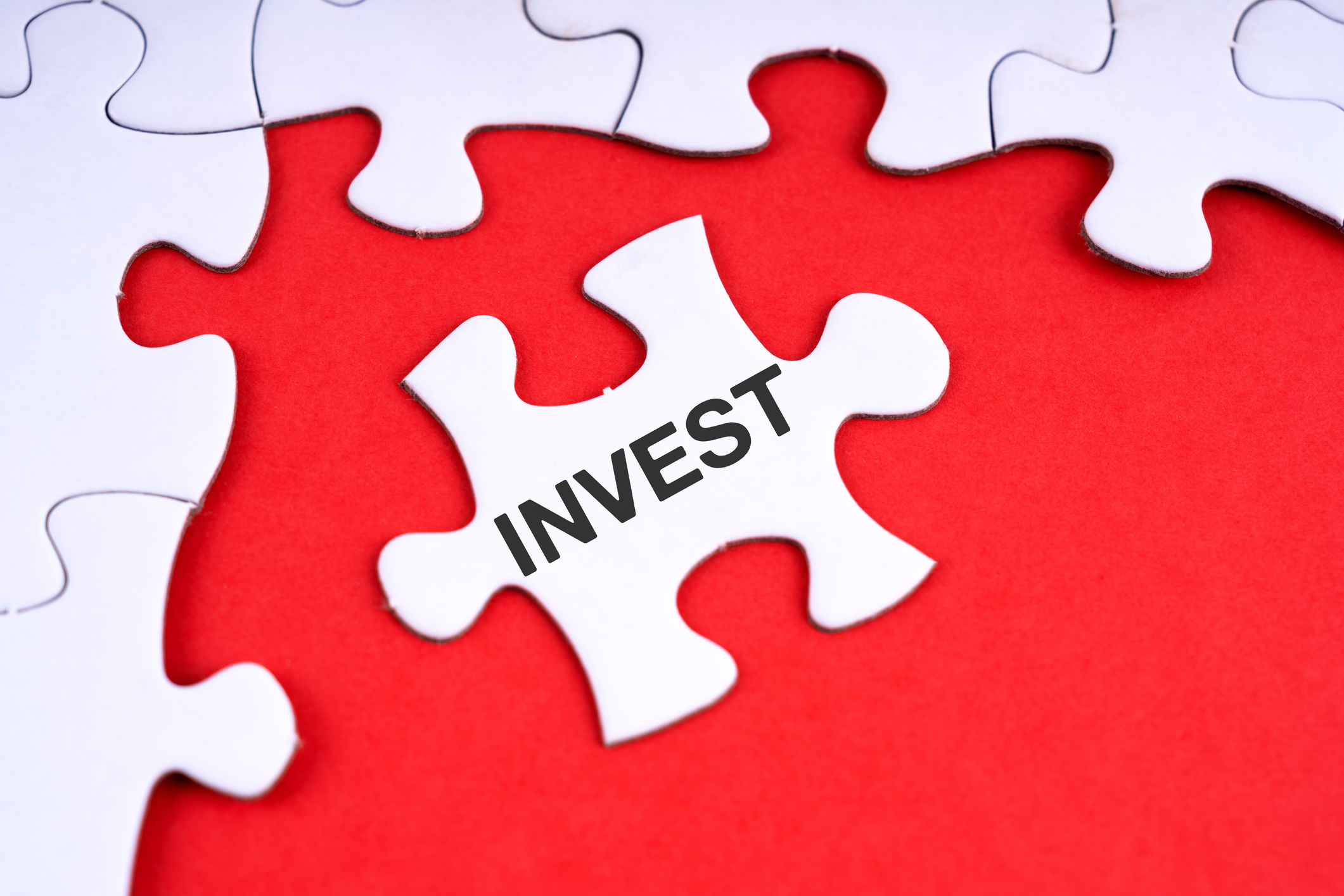Are Bonds a Good Investment for the Trump Era?
Stock market volatility has picked up in reaction to the Trump administration's tariff plans. Should investors consider bonds? We answer that question here.


Profit and prosper with the best of Kiplinger's advice on investing, taxes, retirement, personal finance and much more. Delivered daily. Enter your email in the box and click Sign Me Up.
You are now subscribed
Your newsletter sign-up was successful
Want to add more newsletters?

Delivered daily
Kiplinger Today
Profit and prosper with the best of Kiplinger's advice on investing, taxes, retirement, personal finance and much more delivered daily. Smart money moves start here.

Sent five days a week
Kiplinger A Step Ahead
Get practical help to make better financial decisions in your everyday life, from spending to savings on top deals.

Delivered daily
Kiplinger Closing Bell
Get today's biggest financial and investing headlines delivered to your inbox every day the U.S. stock market is open.

Sent twice a week
Kiplinger Adviser Intel
Financial pros across the country share best practices and fresh tactics to preserve and grow your wealth.

Delivered weekly
Kiplinger Tax Tips
Trim your federal and state tax bills with practical tax-planning and tax-cutting strategies.

Sent twice a week
Kiplinger Retirement Tips
Your twice-a-week guide to planning and enjoying a financially secure and richly rewarding retirement

Sent bimonthly.
Kiplinger Adviser Angle
Insights for advisers, wealth managers and other financial professionals.

Sent twice a week
Kiplinger Investing Weekly
Your twice-a-week roundup of promising stocks, funds, companies and industries you should consider, ones you should avoid, and why.

Sent weekly for six weeks
Kiplinger Invest for Retirement
Your step-by-step six-part series on how to invest for retirement, from devising a successful strategy to exactly which investments to choose.
"Don't fight the Fed" is an old Wall Street mantra, reminding investors that betting against Federal Reserve policy is often futile. But over the next four years, a more fitting maxim might be: "Don't fight Trump."
Case in point: Uncertainty surrounding the Trump administration's tariffs and trade policies has rattled markets. The S&P 500 briefly entered correction territory in early March – this after soaring more than 23% in 2024, marking the first back-to-back years of 20%+ gains since the late 1990s.
For those who spent the past few years asking, "Why own anything but big growth stocks?", the market is serving up an answer.
From just $107.88 $24.99 for Kiplinger Personal Finance
Become a smarter, better informed investor. Subscribe from just $107.88 $24.99, plus get up to 4 Special Issues

Sign up for Kiplinger’s Free Newsletters
Profit and prosper with the best of expert advice on investing, taxes, retirement, personal finance and more - straight to your e-mail.
Profit and prosper with the best of expert advice - straight to your e-mail.
Tech giants like Nvidia (NVDA), Apple (AAPL) and Amazon (AMZN) fueled the latest bull market, leading many investors to question the need for more conservative assets like bonds. But as volatility rises, those same investors may start to rethink their allocations.
"I think we got spoiled over the past 15 years," says Charles Weeks, CFP Board Ambassador and founding partner of Barrister. "Some investors forgot what it's like to suddenly lose 30% in six months."
So, is this bonds' time to shine? Or will inflation and a cautious Fed limit their appeal?
It's probably time for many investors to reacquaint themselves with bonds while also remembering another investing truth: tune out the noise and let reason – not emotions – guide your decisions.
Getting reacquainted with bonds

To understand their potential value right now, it helps to start with the basics. Bonds are loans to governments, agencies or corporations that pay regular interest and return principal at maturity.
They offer a steady income stream, with U.S. Treasury bonds considered the safest and corporate bonds carrying more risk but offering higher potential returns.
A key factor in bond investing is the relationship between interest rates and bond prices.
"Think of it like a seesaw," Weeks explains. "When interest rates rise, bond prices fall. When rates drop, bond prices go up."
That's why bonds struggled when rates climbed. But with the Fed cutting rates three times at the end of 2024 – and signaling the potential for two more rate cuts this year – they have become a more attractive option.
When it comes to bonds, Weeks urges investors to consider the yield curve and duration.
A steep yield curve suggests higher long-term rates, while an inverted curve can warn of economic trouble. Duration measures how much a bond's price moves when rates change. The longer the duration, the more sensitive it is.
For investors seeking stability, bonds provide reliable income and act as a hedge against stock market swings. While they lack the excitement of soaring stocks, their ability to smooth volatility could prove especially valuable in the years ahead.
The case for bonds in the current market

"Bonds are quite attractive now for a variety of reasons," says Scott Ward, CFP Board Ambassador and Wealth Advisor for Compound Planning. "First, they can offer investors competitive yields."
So far this year, bonds have done spectacularly well as a diversifier and a risk-off safe haven. Morningstar reports that core bonds have outperformed stocks.
With inflation stabilizing – at least for now – bonds have regained appeal. Weeks points out that money market funds are yielding around 4%, providing a solid place to park cash. If the Fed lowers rates further, bond investors could see price appreciation.
At the same time, the Trump administration, which has frequently noted the country's debt problems and committed to slashing costs, has a strong incentive to bring the 10-year Treasury yield lower to ease government borrowing costs.
Still, the economic landscape is uncertain. Tariffs could drive inflation higher, eroding bond returns, but if inflation continues to cool, rate cuts could boost bond prices.
But even as market conditions shift, bonds remain a steady force in portfolios.
"Taken together in a diversified portfolio, bonds can provide shock absorption during volatile periods," Ward says.
Weeks agrees, making the case that "There's always a reason to have bonds, even for younger investors. When stocks zig, bonds often zag, helping smooth volatility."
While some investors may chase short-term gains, bonds' true value lies in income, diversification and downside protection – qualities that could prove especially valuable in the years ahead.
How to gain exposure to bonds

Investors can buy individual bonds across various sectors and hold them to maturity, but for most, that's impractical. Bond funds, including ETFs and mutual funds, offer the easiest and most diversified way to gain exposure.
"For most investors, ETFs and mutual funds are the best way to own bonds," Weeks says. "Unless you're buying U.S. Treasuries or T-bills directly, I wouldn't recommend purchasing individual corporate or municipal bonds due to default risk."
Even highly rated corporate bonds carry the risk of unexpected events, such as accounting scandals. While municipal bonds were once considered extremely safe, some local governments have defaulted.
Weeks prefers bond ETFs over individual securities for this reason. "Think about Enron – it was once a market darling, then turned out to be one of the biggest frauds in history. Why take that risk when you can diversify with a fund?"
Experts say how much an investor should allocate to bonds depends on risk tolerance, time horizon and financial goals. Older and more conservative investors typically hold more bonds, while younger investors might allocate as little as 10% to fixed income.
Ultimately, uncertainty is just a part of investing. Trying to time the stock or bond market rarely pays off. Instead, focus on your own financial needs and not on what a president may or may not do next.
Related content
Profit and prosper with the best of Kiplinger's advice on investing, taxes, retirement, personal finance and much more. Delivered daily. Enter your email in the box and click Sign Me Up.

Jacob Schroeder is a financial writer covering topics related to personal finance and retirement. Over the course of a decade in the financial services industry, he has written materials to educate people on saving, investing and life in retirement.
With the love of telling a good story, his work has appeared in publications including Yahoo Finance, Wealth Management magazine, The Detroit News and, as a short-story writer, various literary journals. He is also the creator of the finance newsletter The Root of All (https://rootofall.substack.com/), exploring how money shapes the world around us. Drawing from research and personal experiences, he relates lessons that readers can apply to make more informed financial decisions and live happier lives.
-
 Nasdaq Leads a Rocky Risk-On Rally: Stock Market Today
Nasdaq Leads a Rocky Risk-On Rally: Stock Market TodayAnother worrying bout of late-session weakness couldn't take down the main equity indexes on Wednesday.
-
 Quiz: Do You Know How to Avoid the "Medigap Trap?"
Quiz: Do You Know How to Avoid the "Medigap Trap?"Quiz Test your basic knowledge of the "Medigap Trap" in our quick quiz.
-
 5 Top Tax-Efficient Mutual Funds for Smarter Investing
5 Top Tax-Efficient Mutual Funds for Smarter InvestingMutual funds are many things, but "tax-friendly" usually isn't one of them. These are the exceptions.
-
 Nasdaq Leads a Rocky Risk-On Rally: Stock Market Today
Nasdaq Leads a Rocky Risk-On Rally: Stock Market TodayAnother worrying bout of late-session weakness couldn't take down the main equity indexes on Wednesday.
-
 5 Top Tax-Efficient Mutual Funds for Smarter Investing
5 Top Tax-Efficient Mutual Funds for Smarter InvestingMutual funds are many things, but "tax-friendly" usually isn't one of them. These are the exceptions.
-
 Why Invest In Mutual Funds When ETFs Exist?
Why Invest In Mutual Funds When ETFs Exist?Exchange-traded funds are cheaper, more tax-efficient and more flexible. But don't put mutual funds out to pasture quite yet.
-
 Social Security Break-Even Math Is Helpful, But Don't Let It Dictate When You'll File
Social Security Break-Even Math Is Helpful, But Don't Let It Dictate When You'll FileYour Social Security break-even age tells you how long you'd need to live for delaying to pay off, but shouldn't be the sole basis for deciding when to claim.
-
 I'm an Opportunity Zone Pro: This Is How to Deliver Roth-Like Tax-Free Growth (Without Contribution Limits)
I'm an Opportunity Zone Pro: This Is How to Deliver Roth-Like Tax-Free Growth (Without Contribution Limits)Investors who combine Roth IRAs, the gold standard of tax-free savings, with qualified opportunity funds could enjoy decades of tax-free growth.
-
 One of the Most Powerful Wealth-Building Moves a Woman Can Make: A Midcareer Pivot
One of the Most Powerful Wealth-Building Moves a Woman Can Make: A Midcareer PivotIf it feels like you can't sustain what you're doing for the next 20 years, it's time for an honest look at what's draining you and what energizes you.
-
 Stocks Make More Big Up and Down Moves: Stock Market Today
Stocks Make More Big Up and Down Moves: Stock Market TodayThe impact of revolutionary technology has replaced world-changing trade policy as the major variable for markets, with mixed results for sectors and stocks.
-
 I'm a Wealth Adviser Obsessed With Mahjong: Here Are 8 Ways It Can Teach Us How to Manage Our Money
I'm a Wealth Adviser Obsessed With Mahjong: Here Are 8 Ways It Can Teach Us How to Manage Our MoneyThis increasingly popular Chinese game can teach us not only how to help manage our money but also how important it is to connect with other people.